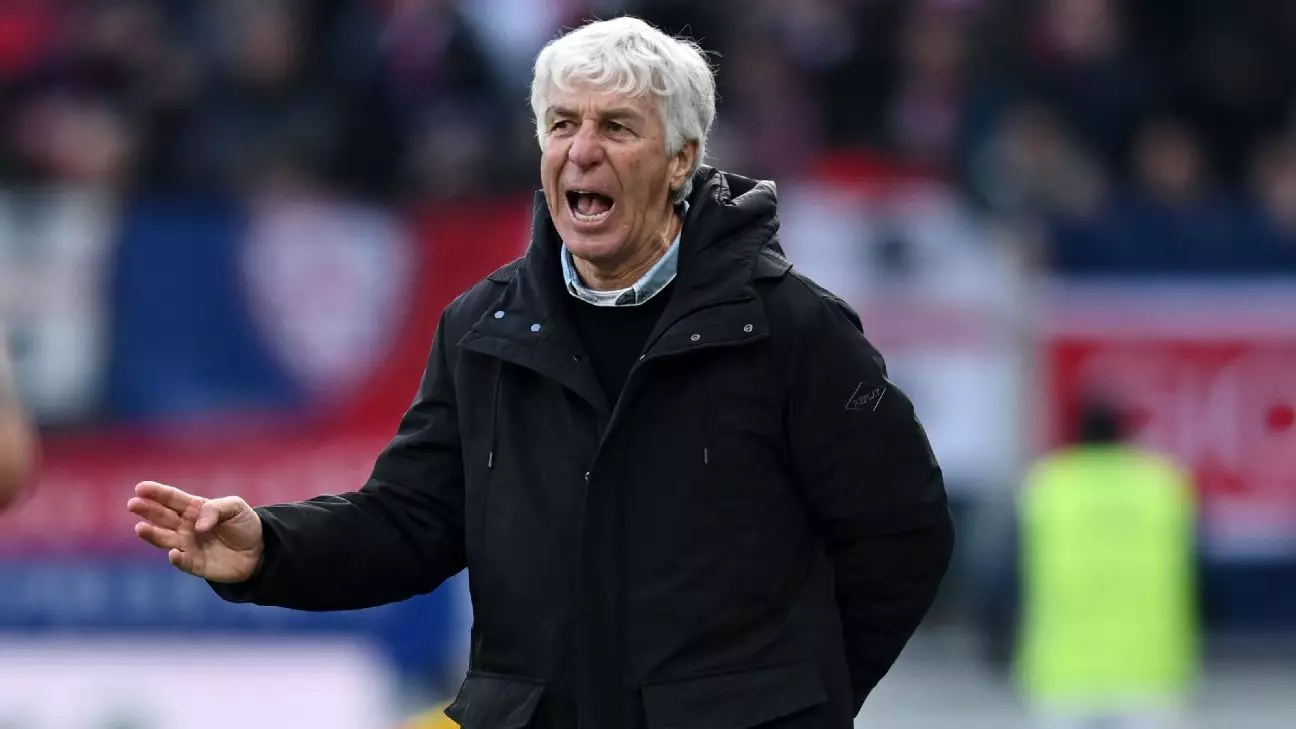The recent comments made by Atalanta coach Gian Piero Gasperini regarding his striker Ademola Lookman have ignited a firestorm of controversy in the football community. Following a disappointing 3-1 loss at home to Club Brugge, which resulted in Atalanta’s exit from the Champions League, Gasperini remarked that Lookman was “one of the worst penalty takers” he had ever witnessed. This statement was received poorly, particularly by Lookman, who took to Instagram to express his feelings, describing the comments as “deeply disrespectful” and harmful to his confidence. Here, we delve into the implications of such remarks, the potential motivations behind them, and their impact on team dynamics.
Lookman’s performance during the match included scoring a goal, a glimmer of hope amidst a serious defeat. However, his missed penalty took center stage in Gasperini’s post-match analysis, overshadowing his contributions. This commentary not only reflects the innate pressures associated with professional sports but also questions the appropriateness of publicly singling out players for their failures, particularly in emotionally charged situations like a critical knockout match. The error becomes a focal point, revealing deeper issues within team morale and player relationships when the coach uses media channels to criticize rather than seek constructive discussions in private settings.
In Gasperini’s defense, he suggested that Lookman was not the designated penalty taker thus implying that other players, including Charles De Ketelaere and Mateo Retegui, should have been more proactive in ensuring the proper decision was made. Yet, this raises another critical issue concerning the culture of communication within the Atalanta squad. Team dynamics flourish in environments where players feel supported, and having a coach openly critique an individual can gnaw at the collective spirit and trust. Such public assessments can lead to rifts within the team and create an atmosphere where players may feel reluctant to voice their perspectives or take risks in crucial moments.
Implications for the Coach and Future Matches
Gasperini’s refusal to censor his comments invites reflection on the responsibilities of a coach, particularly in high-stakes situations. While his intention may have been to motivate Lookman and the team, the execution of such thoughts through the media can often lead to misinterpretations and an erosion of player confidence. As Atalanta prepares to face Empoli in their next match, the focus will undoubtedly shift towards whether they can rebound from this incident and the baggage it might bring. This scenario serves as a crucial lesson for coaches in balancing transparency with tact, especially in managing player reputations and emotional well-being.
The fallout from Gasperini’s remarks not only highlights the importance of sensitive communication in sports but also raises questions about how public criticism can impact team integrity and player performance. The incident reminds us all that, in the high-pressure environment of competitive sports, fostering a supportive network may be just as crucial as tactical training and strategy.

